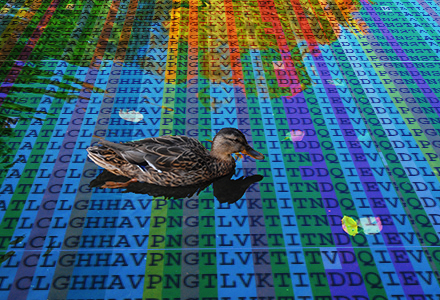We are supervising Ph.D. students in Graduate School of Infectious Diseases in Hokkaido University. To join our laboratory as a graduate student, you need to be enrolled at the Doctoral Program of the Graduate School of Infectious Diseases. The graduate school has only Ph.D. courses. Please check the Applicant Qualifications section in the Application Guidelines of the graduate school. All classes of the doctoral program are lectured in English. English ability of each applicant is tested by the score of standardized English tests such as TOEFL.
Tuition and Scholarship.
See the admissions page of Hokkaido University for latest information on tuition fee. General information on scholarships are available at here.
Knowledge Required to Study in Our Division
Programming
- File operations in command line interface (Mac: Terminal, Windows: WSL or Cygwin)
- Basic unix tools (bash, ssh, make, git, …)
- Coding with programming languages (C++/C, Ruby, R, Java, Python, … )
Biology
- Central dogma of molecular biology (replication, transcription, translation)
- Replication of RNA viruses
- Humoral immunity (antibody, B-cell,…)
Statistics
- Discrete probability distributions (binomial distribution, Poisson distribution, …)
- Continuous probability distributions (normal distribution, exponential distribution, …)
- The likelihood function and its maximization
Mathematics
- Linear Algebra (matrix, vectors, eigenvalues, eigenvectors, …)
- Calculus (derivative, integration, ordinary differential equations,…)
- Numerical methods (Euler method, …)
Bioinformatics and Phylogenetics
- Algorithms (pairwise alignment, multiple alignment, neighbor joining, …)
- Substitution models of nucleotide sequences (JC69, HKY85, …)
- Tools (mafft, blast, bwa, beast,…)
Infectious Disease Modelling
- Terminology (infection, infectiousness, pathogenicity, virulence,…)
- Epidemiological parameters (basic reproduction number, … )
- Compartment models (SI, SIR, SEIR,…)
Here are recommended textbooks.
- Gibas C, Jambeck P, Fenton J. Developing bioinformatics computer skills. O’Reilly Media, Inc.; 2001
- Chacon S, Straub B. Pro git. Apress; 2014
- Ross SM. Introduction to probability models. Academic press; 2014
- Strang G. Introduction to linear algebra. Wellesley-Cambridge Press; 2016
- Stewart J. Calculus Cengage Learning; 2015
- Jones NC, Pevzner PA, Pevzner P. An introduction to bioinformatics algorithms. MIT press; 2004
- Yang Z. Computational molecular evolution. Oxford University Press; 2006
- Keeling MJ, Rohani P. Modeling infectious diseases in humans and animals. Princeton University Press; 2011
- Oshima A, Hogue A. Writing academic english. Longman; 2000
- Swales JM, Feak CB. Academic writing for graduate students: Essential tasks and skills. Ann Arbor: University of Michigan Press; 2004.
Here are recommended online courses to refresh your knowledge.
- Harvard T.H. Chan School of Public Health. Introduction to Infectious Disease Modeling
- Robert Gallager. 6.262 Discrete Stochastic Processes
- Gilbert Strang. 18.06 Linear Algebra. Spring 2010. Massachusetts Institute of Technology: MIT OpenCourseWare, https://ocw.mit.edu. License: Creative Commons BY-NC-SA.
- John Guttag. 6.00SC Introduction to Computer Science and Programming. Spring 2011. Massachusetts Institute of Technology: MIT OpenCourseWare, https://ocw.mit.edu. License: Creative Commons BY-NC-SA.
- Christopher Burge, David Gifford, and Ernest Fraenkel. 7.91J Foundations of Computational and Systems Biology. Spring 2014. Massachusetts Institute of Technology: MIT OpenCourseWare, https://ocw.mit.edu. License: Creative Commons BY-NC-SA.
- Graham Walker, Julia Khodor, Michelle Mischke, and Penny Chisholm. 7.014 Introductory Biology. Spring 2005. Massachusetts Institute of Technology: MIT OpenCourseWare, https://ocw.mit.edu. License: Creative Commons BY-NC-SA.
- Charles Russell Severance, Programming for Everybody (Getting Started with Python). University of Michigan. https://www.coursera.org
- Gabriel M. Leung, Joseph T. Wu, Kwok-Yung Yuen, Tommy Lam, Maria Huachen Zhu, Guan Yi, Benjamin Cowling, Thomas Abraham, Mark Jit, Malik Peiris and Marc Lipsitch. Epidemics. The University of Hong Kong. https://www.coursera.org
When you contact us,
I would encourage you to prepare a research proposal describing
- What is your research question?
- Why is the research important?,
- How do you approach to answer your research question?
Don’t forget to use Google Scholar to find related research that have done before.
